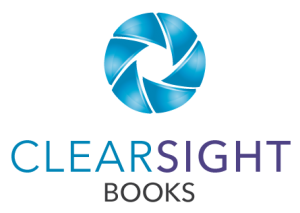
As a writer, you look at your manuscript over and over; at a certain point you can no longer “see” it. Beta readers offer fresh eyes to spot what’s working—or not working—from the reader’s point of view.
While beta readers is a catchall term for early readers, you may also run across the terms alpha readers, subject matter experts, and sensitivity readers. We’ll briefly define each, but rather than get tangled up in terminology, identify what you need, and then approach the people who can offer appropriate feedback for that need.
Fair warning: Any time you ask for feedback, be prepared—it may mean additional revisions!
Alpha readers
Alpha readers tend to read early in the writing process when you have a draft that still needs revision. At this point, you are looking for feedback on content and concepts: Overall, does it work? For example, you might ask alpha readers:
- Are the concepts clear?
- Does the book flow well from one idea to the next?
- What’s working? What’s not working?
- Are there significant gaps in content? What are they?
- Is my voice coming through?
Alpha readers need to look at the big picture objectively and critically while having tolerance for messiness and incompleteness. If you’re still making revisions, it’s a waste of time for them to get bogged down in minor refinements to grammar and punctuation. At some point you’ll hire an editor, but from an early reader you need perspective, not professional editorial skills.
Consider the following for your alpha readers:
- Colleagues who know your topic well and can help fill gaps or flag inaccuracies.
- Friends or colleagues who know you well (and your topic to some extent) so they can tell you if your voice is coming through.
- Someone knowledgeable about writing, maybe from your writing critique group, to flag craft problems (but remember: eventually, you still need an editor!).
Note: Family members and close friends usually feel like they have to be nice rather than critical, so they are often not the best choice for alpha/beta readers.
Beta readers
Beta readers tend to read later in the process, when your manuscript is closer to done. In fact, you may not know what else to change because you’ve revised it so much, and the manuscript may even have gone through an initial editorial pass.
Beta readers’ feedback can include the conceptual questions above (especially if you haven’t used alpha readers). You also should ask for more concrete and specific feedback on the writing. For example:
- Where does the language confuse you? Where is it clumsy or unclear?
- Do any of the parts of the book drag or lose your attention? (If so, please flag them.)
- Is the information presented in the right order?
Shape these general questions to suit your book, and be sure to include any questions about your specific content. Also, encourage beta readers to give critical feedback about anything—even if it’s not something you thought to ask about.
Consider asking the following people to be beta readers:
- Someone from your target audience – This is the best test of whether your book is accomplishing what you want it to.
- Colleagues who know the topic – They can let you know of any content issues, such as missing, extraneous, or poorly explained content.
- Colleagues who are skilled writers – They can catch problematic language.
If beta readers happen to notice grammatical problems or typos, that’s helpful, but they should not be expected to edit or proofread your manuscript. (And ask the former English teachers to steer clear of those weeds!)
Subject matter experts
Sometimes you write about a topic that is familiar to you, but you’re not an expert in it. In these cases, it may be beneficial to have a subject matter expert (SME) review your manuscript for accuracy, for current thinking in the field, or for correct terminology. You may need someone to review the book as a whole, or just specific sections that address the topic in question.
For example, I have a client working on a personal finance book. He’s well versed in the subject but asked a CPA and a registered investment advisor (RIA) to review it for correctness and any nuances to add.
Sensitivity readers
Sensitivity readers review your book with particular communities in mind, frequently those underrepresented or misrepresented in media and literature, to help you avoid inaccuracies, stereotypes, and inadvertent offensiveness. They are especially helpful when you are writing about someone or something outside your firsthand experience.
In my observation, sensitivity readers tend to be more common in the fiction realm than nonfiction. Your editor will likely be attuned to many potential issues and can help you determine whether a sensitivity reader should be consulted.
Logistics
You don’t need alpha readers, beta readers, SMEs, and sensitivity readers for every manuscript. Choose what’s right for your project. The goal is simply to get helpful feedback from fresh eyes so you can produce a better book for your audience.
As a best practice, ask your readers their availability and give them your schedule well in advance. Reading a book is a significant time investment, so they need to work it into their schedule. And give your readers a reasonable amount of time to review your book. For books of about 50k words, two to three weeks may be sufficient. Longer or more complex books may require more time.
Additionally, ask your readers what format they prefer: Word document, Google doc, pdf, print? Do what you can to make the process as easy as possible for them.
Finally, it is not a common practice to pay alpha or beta readers. It is more common to thank them in the acknowledgments of the book, give them a signed copy when it’s published, and/or give them a modest thank-you present. However, you may find engaging a sensitivity reader is more akin to hiring an editor; and SMEs could fall into either camp, depending on the depth of review needed. Use your judgment.
Ready for beta readers?
You may have one lingering question: What happens if you disagree with your beta readers’ feedback?
Answer: Watch for patterns and pay attention to them. If something consistently confuses your readers, chances are you should address it. But, ultimately, you’re the author, and any revisions are your call.
Wondering how beta readers fit into your project? Some of our clients have had beta reader feedback before they come to us, and some ask for feedback after we’ve collaboratively revised the manuscript. Let’s talk about what might work for you. Email karin@clearsightbooks.com.

